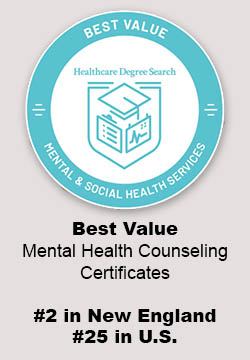Our dedication to Racial Equality and Social Justice (RESJ) spans decades. Learn more about our RESJ Initiative
Trauma Studies Certificate
-
Credits:
15
-
Degree:
Graduate Certificate
Program Description

A graduate certificate in Trauma Studies provides professional training in crisis intervention and trauma treatment, education and prevention, leading to certification. The program has a strong commitment to educating compassionate, ethical and effective trauma specialists. The program emphasizes the role of trauma specialists in implementing trauma informed care across disciplines and utilizing community resources.
In 2021, Cambridge College's mental health counseling certificates were ranked as #1 in New England for Best Quality, #2 in New England for Best Value and #25 in the U.S. for Best Value by Healthcare Degree Search (HDS), an organization that specializes in promoting healthcare careers, and ranks programs on outcome-based factors, based on data from the U.S. Department of Education. Learn more.
Learning Outcomes
Students will gain knowledge of crisis, trauma, post-traumatic stress reactions, trauma-specific interventions and disaster mental health in multi-cultural settings. They can apply the learned skills in trauma assessment, counseling and treatment to effectively respond to immediate and long-term needs of survivors, including war veterans, survivors of child abuse, first responders, immigrants and refugees, as well as victims of crime, disasters, domestic violence, sex trafficking and torture.
Careers and Further Study
Upon completion, students will qualify to work in crisis response teams, provide trauma-informed care in community mental health, addiction treatment and rehabilitation programs in school settings and provide support for veterans, survivors of gender-based volence and refugees.
Curriculum
Take CCP 727 or CCP 729.
Program Chair
Pages
Admissions
-
Admission Test:
No standardized graduate school tests required for admission into non-licensure programs
-
Admissions Office:
1-800-829-4723
- Application Form:
-
Application Fee:
$50 ($100 for international students)
Health Requirements for Massachusetts Students
The Massachusetts Health Department and Cambridge College require the following of students in Massachusetts:
Immunizations – All students in Massachusetts are required to get certain immunizations before you can register for your first term. See form
Health Insurance – In Massachusetts, undergraduate students taking nine or more credits/term and graduate students taking six or more credits/term must enroll in the College’s health insurance plan. Students who have insurance with comparable coverage may request a waiver. See information and enroll or waive.
School Requirements
International Students
International students need to provide supplemental documentation:
- Official demonstration of English language proficiency
- Supplemental documentation for issuance of I-20
- International transcripts, evaluated by an accepted evaluation service
Transfer Credit
Please complete the transfer credit request form if you wish to have prior course work evaluated for transfer. Learn more about transferring credits.
Tuition
-
Credits:
15
-
Application Fee:
$50 ($100 for international students)
-
Health Insurance Fee:
$3,940 - Required for Massachusetts students only. See waiver details on Tuition & Fees page.)
-
Internship/Practicum Fee:
$400
Note: Rates are as of July, 2022, and are subject to change without notice. Rates apply to all students, unless otherwise noted.
Financial Aid
Cambridge College offers financial aid to students in our degree programs who are enrolled at least half time. Undergraduate students must be enrolled in at least 6 credits each term. Graduate and doctoral students must be enrolled in at least 4 credits each term. Learn more
Grants, Scholarships and Loans
Cambridge College welcomes the opportunity to support your efforts to pay for college. Federal, state and local resources in the form of grants, scholarships, loans and work-study, including Cambridge College Scholarships, are available to help defray the cost of tuition. Learn more
Getting Your Company to Help
Many companies have tuition assistance programs, designed to help their employees with their professional development. Learn more


